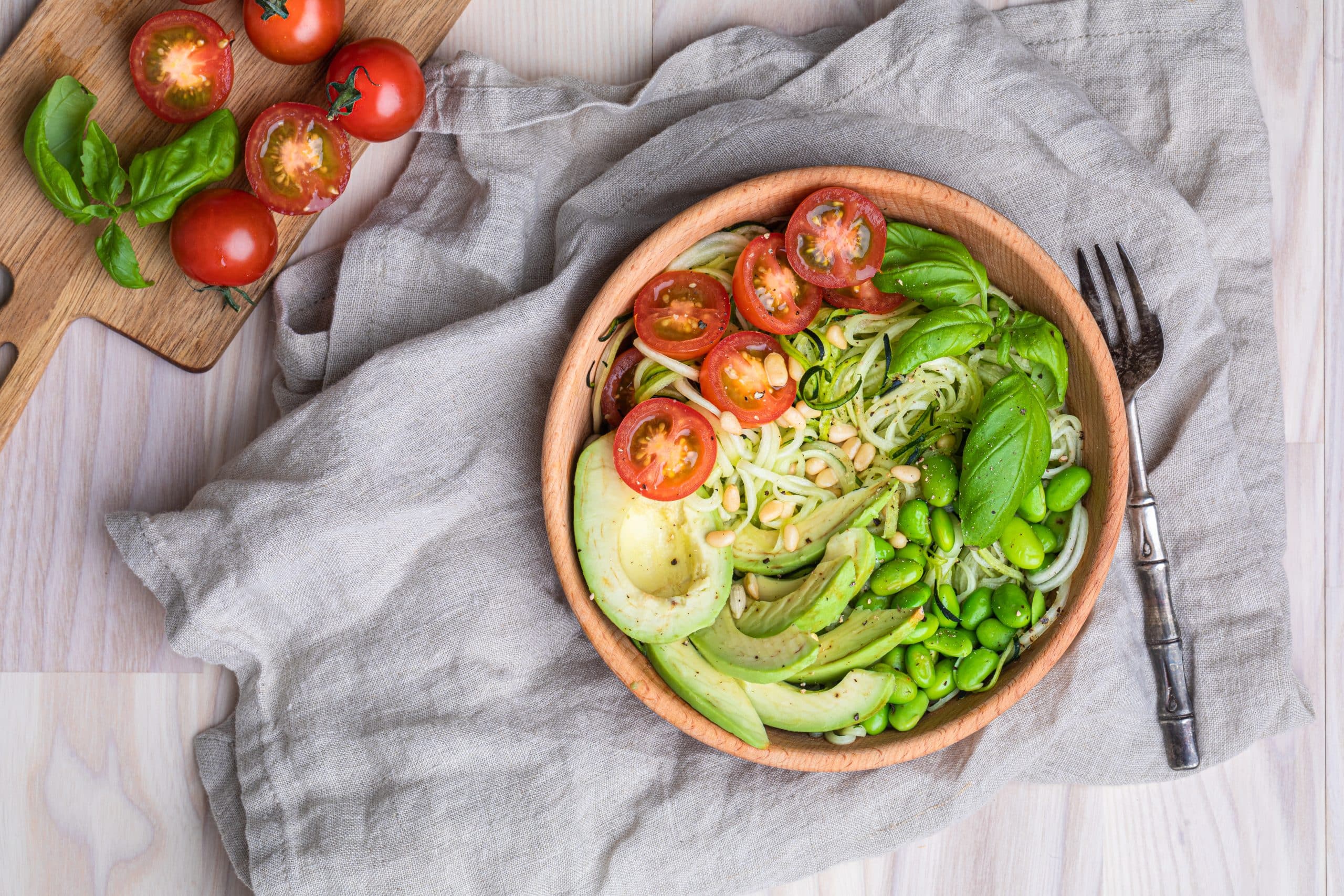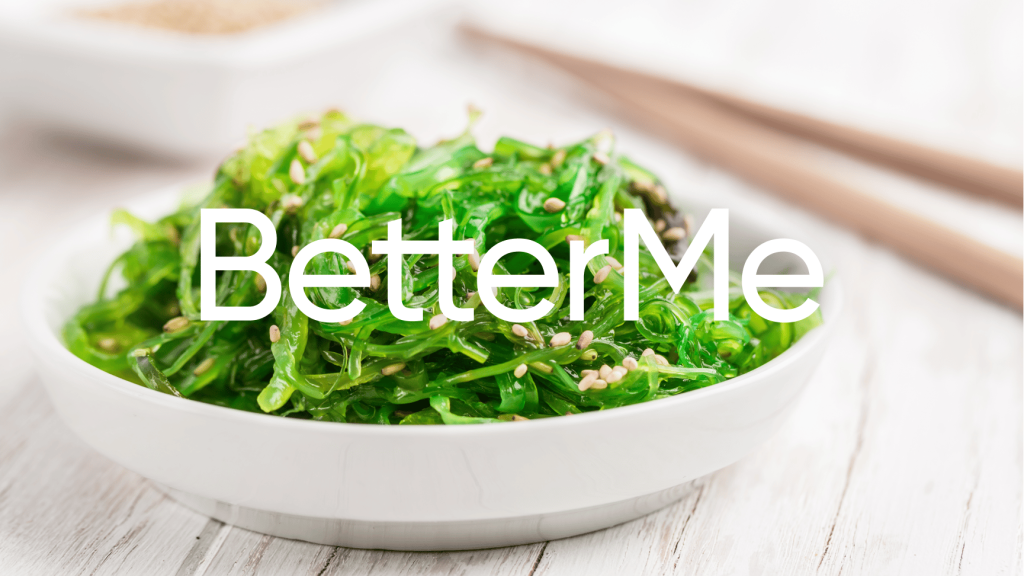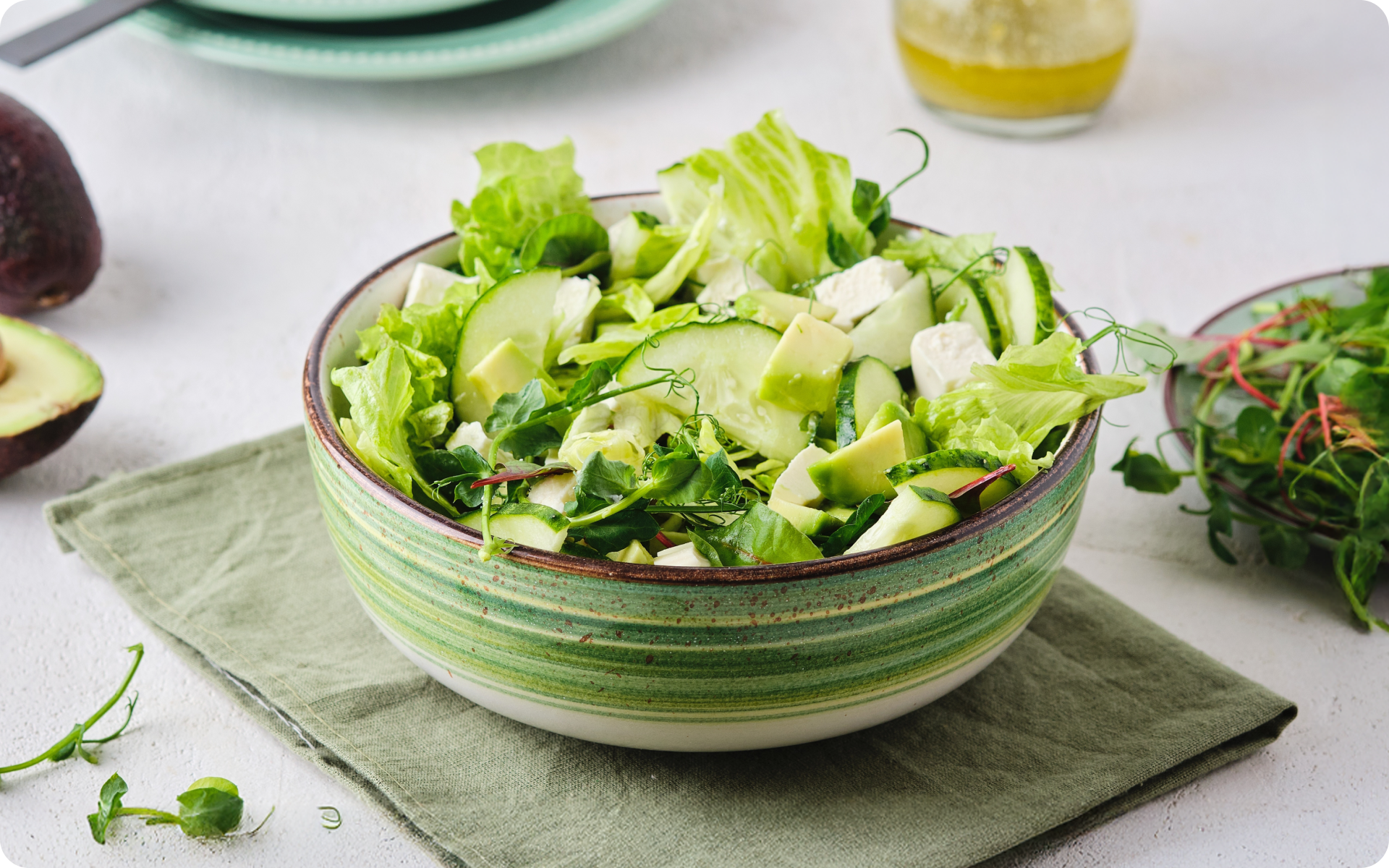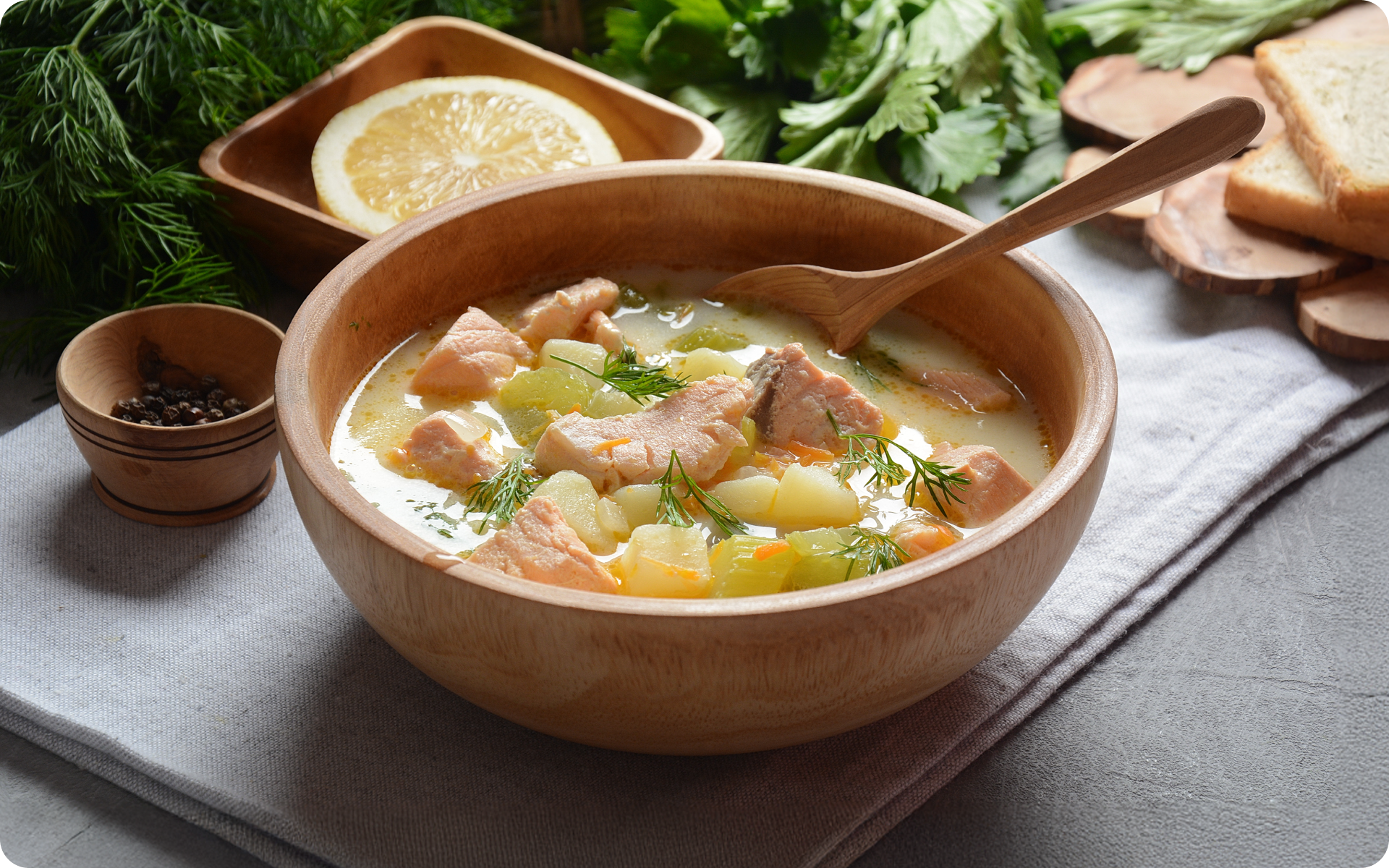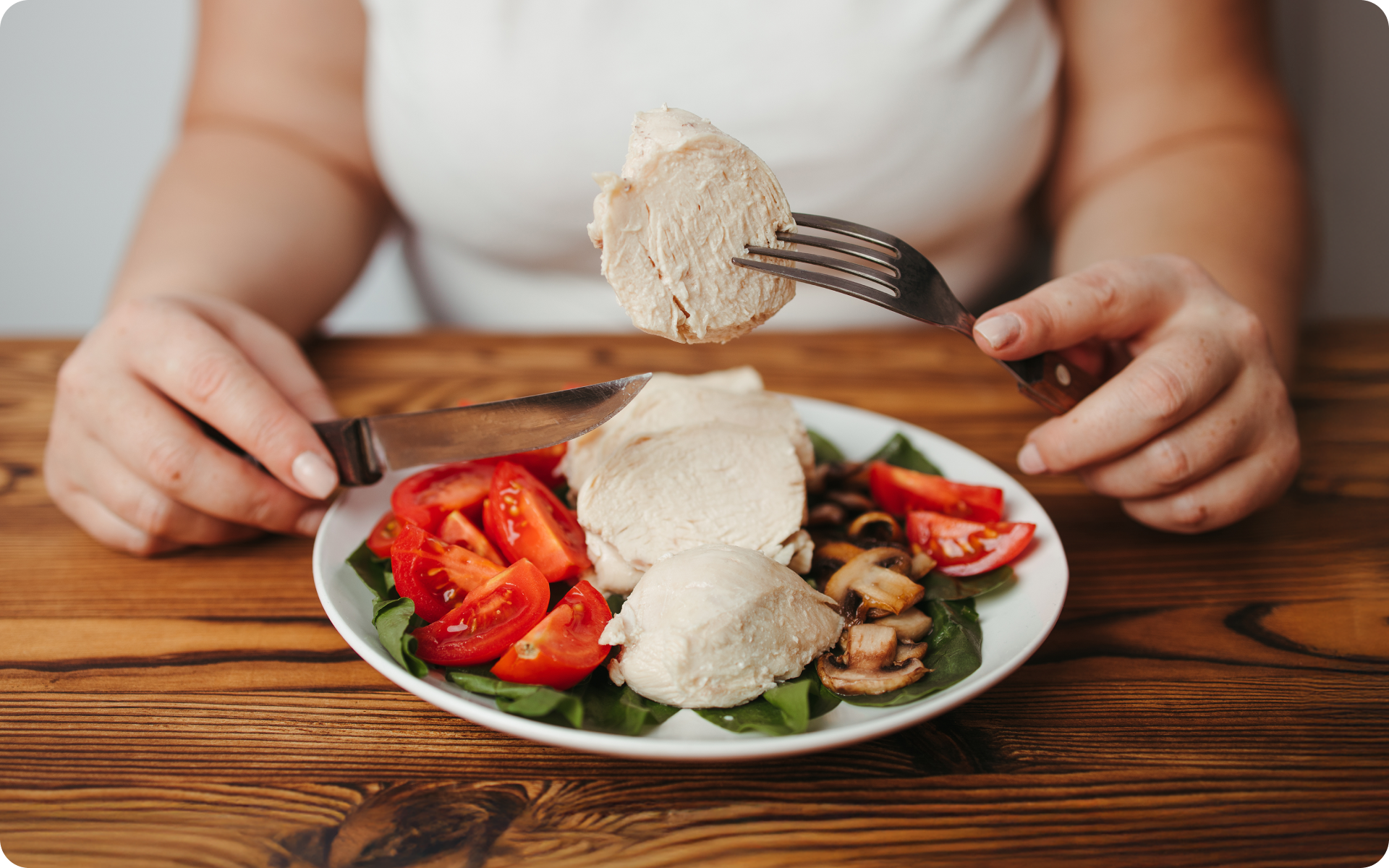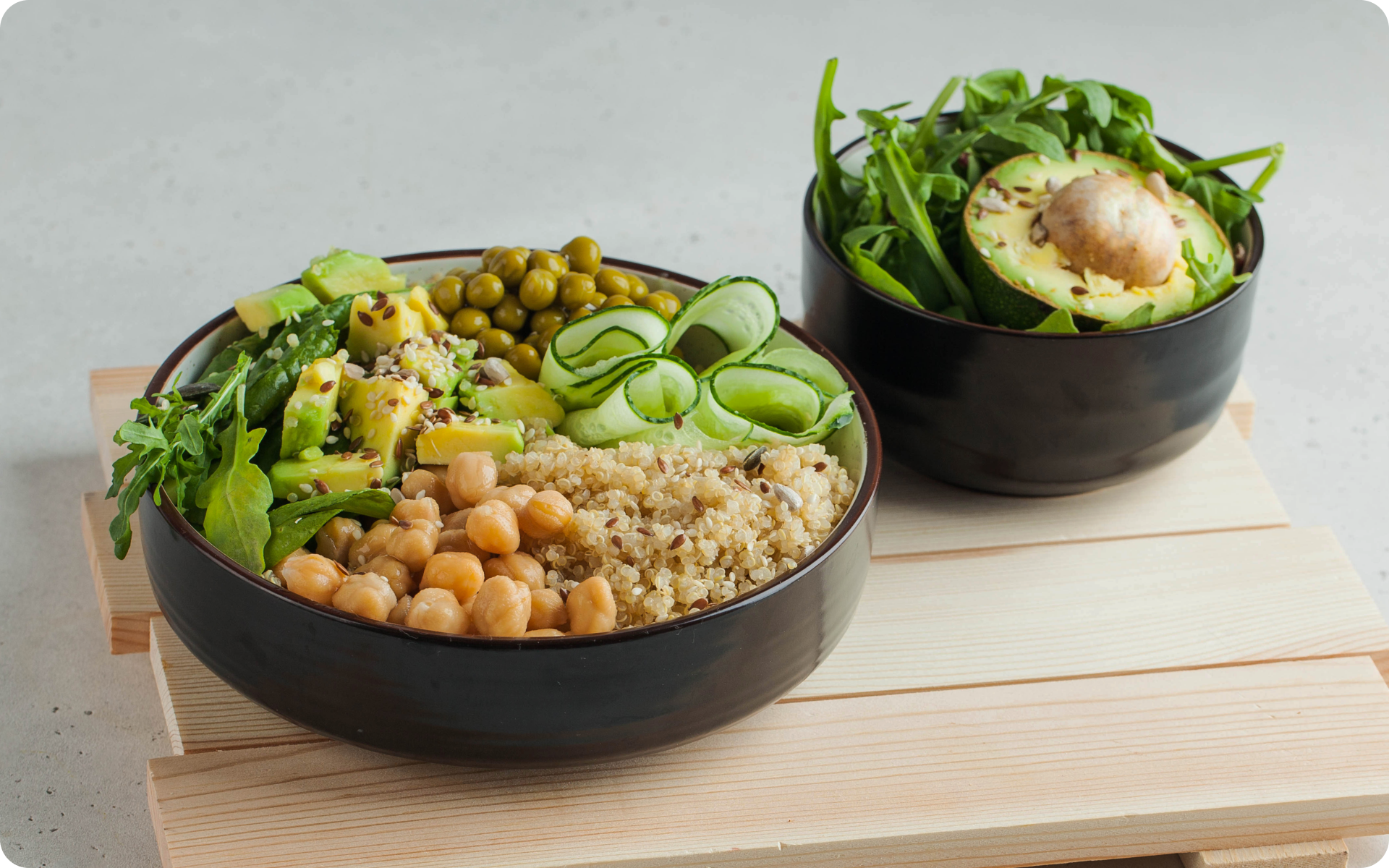A combination of chronic physical and psychological stress, a processed food diet, and a sedentary lifestyle are the main drivers of inflammation. This sneaky condition is at the root of many common diseases, including heart disease, arthritis, diabetes, and even cancer. The good news is that inflammation is not a life sentence. Lifestyle changes, such as following an anti-inflammatory diet, can dramatically reduce your risk of chronic disease. Of course, exercise and stress management are also important components of an anti-inflammatory lifestyle. In this article we’ll take a closer look at the six different types of anti-inflammatory diets and how they can benefit your health. But first, let’s briefly review what inflammation is and why you should care about reducing it.
Get your personalized
meal plan!
What Is Inflammation?
The human immune system is a complex network of cells and proteins that protect the body against infection and disease. One of the key functions of the immune system is to defend against foreign invaders, such as bacteria and viruses.
In response to an infection or injury, the immune system kicks into gear and causes inflammation. This is a natural and necessary process that helps to heal the body (13).
Anti-Inflammatory Diet: When Is Inflammation A Problem?
Inflammation is problematic in two instances; when it occurs in response to something that’s not actually harmful and when it becomes chronic.
Sometimes the immune system can become dysregulated and attack healthy tissue. This can lead to autoimmune diseases such as rheumatoid arthritis, lupus, and Hashimoto’s thyroiditis. In other cases, it attacks substances like pet dander and pollen, which leads to allergies (7).
Chronic inflammation is another matter entirely. This is low-grade inflammation that occurs on a daily basis, often in response to stress, a processed food diet, or other lifestyle factors. This type of inflammation doesn’t abate and can cause long-term damage to the body (3).
Chronic inflammation triggers a cascade of negative events. For one, the increased energy demand on the body results in a respiratory burst (a.k.a., oxidative stress). This, in turn, damages DNA and other cellular structures (3).
What’s more, chronic inflammation disrupts hormone signaling and alters gene expression. This can lead to insulin resistance, weight gain, and a host of other health problems (3).
Chronic diseases such as heart disease, arthritis, and diabetes have all been linked to chronic inflammation. In fact, inflammation is thought to be the common denominator in many chronic diseases (3).
Read More: Anti Inflammatory Diet Plan: What Does It Entail And How Do You Get Started? Easy Beginner Guide!
The Role Of Diet In Inflammation
The oxidative stress and hormone disruption that accompany chronic inflammation can be further exacerbated by a processed food diet (12). This type of diet is high in sugar, refined carbs, and unhealthy fats, and low in antioxidants and other nutrients.
A study published in the journal Nutrients found that a processed food diet is a major risk factor for chronic inflammation. Based on these findings, a whole food diet, rich in colorful fruits and vegetables, unrefined grains, healthy fats, and lean protein, appears to be the best defense against chronic inflammation (10).
Certain foods have been shown to help fight inflammation. They contain antioxidants that either blunt or repair the damage done by oxidative stress. They also contain anti-inflammatory compounds that help to regulate the immune system.
These anti-inflammatory foods include (5, 6):
- Oily fish – fish like salmon, mackerel, and sardines are rich in omega-3 fatty acids, which have potent anti-inflammatory effects
- Berries – berries are high in antioxidants and other nutrients that help to fight inflammation
- Nuts and seeds – nuts and seeds are a good source of vitamin E, an antioxidant that helps to protect cells from damage
- Vegetables – vegetables like broccoli, kale, and Brussels sprouts contain sulforaphane, a compound that helps to protect cells and reduce inflammation
- Green tea – green tea is rich in polyphenols, antioxidants that have been shown to reduce inflammation
- Olive oil – olive oil is a healthy fat that contains oleocanthal, a compound with anti-inflammatory properties
- Turmeric – turmeric is a spice that contains curcumin, a compound with potent anti-inflammatory effects
- Ginger – ginger contains gingerol, a compound with anti-inflammatory and antioxidant properties
- Fenugreek – fenugreek is a spice that contains trigonelline, a compound with anti-inflammatory and antioxidant effects
- Cinnamon – cinnamon is a spice that contains cinnamaldehyde, a compound with anti-inflammatory and antioxidant effects
- Red wine – red wine is rich in resveratrol, an antioxidant that has been shown to reduce inflammation
- Dark chocolate – dark chocolate is rich in flavanols, antioxidants that have been shown to reduce inflammation.
6 Anti-Inflammatory Diets To Try
Knowing which foods to eat, and which ones to avoid is a great starting point in your battle against chronic inflammation.
But if you really want to supercharge your efforts, you may want to try one of these anti-inflammatory diets. They are structured ways of eating that have been shown to be effective in reducing inflammation.
The Mediterranean Diet
Named after the Mediterranean Sea, this diet is traditional in countries bordering the sea (Italy, Greece, Spain, Turkey, Morocco) and is becoming more popular in the United States.
Doctors and dietitians alike are prescribing the diet to help with various medical conditions, one of which is reducing inflammation.
Studies show that the diet can help reduce markers of inflammation, such as C-reactive protein (CRP). CRP is a protein that rises in response to inflammation in the body. High levels of CRP are linked to an increased risk of heart disease, stroke, and diabetes (2).
The Mediterranean diet is high in fruits, vegetables, whole grains, legumes, nuts, and olive oil. It also includes moderate amounts of fish, poultry, dairy, and red wine. The diet is low in processed meats, sugary drinks, and refined carbs.
There are many different ways to follow the Mediterranean diet. Some people choose to eat all Mediterranean foods, while others may mix and match depending on their preferences. The most important part of the diet is to focus on eating whole, unprocessed foods.
This diet may be a good choice for you because it:
- Includes a variety of foods – a far cry from restrictive, fad diets
- Is easy to follow – there’s no need to count calories or measure portion sizes
- Can be tailored to your preferences – you can choose which foods you want to eat
- Is flexible – you can eat out at restaurants or cook at home
- Has a host of health benefits – not just for reducing inflammation, but also for promoting heart health, weight loss, and more.
Looking for a way to break the vicious cycle of weight loss and tone up all the jiggly parts? Watch the extra pounds fly off and your muscles firm up with the BetterMe app!
The DASH Diet
The DASH diet (Dietary Approaches to Stop Hypertension) was originally designed to help people lower their blood pressure (4).
It is a flexible and balanced eating plan that was developed when researchers noticed that people who followed a plant-based diet had lower blood pressure than those who didn’t (1). While the diet was not originally designed to fight inflammation, it has been shown to do just that.
The DASH diet is based on eating whole, unprocessed foods. It is high in fruits, vegetables, whole grains, low-fat dairy, nuts, beans, and seeds.
The diet is also low in saturated and unhealthy fats, red meat, salt, and added sugars. Because of this, the DASH diet is often touted as being a healthy way of eating for everyone, not just those with hypertension.
The DASH diet doesn’t list specific foods to eat. Rather, it suggests getting a specific amount of each food group at each meal. For example, the plan suggests getting (4):
- Grains: 7-8 daily servings
- Vegetables: 4-5 daily servings
- Fruits: 4-5 daily servings
- Low-fat or fat-free dairy products: 2-3 daily servings
- Meat, poultry, and fish: 2 or less daily servings
- Nuts, seeds, and dry beans: 4-5 servings per week
- Fats and oils: 2-3 daily servings
- Sweets: try to limit to less than 5 servings per week
What counts as a serving? Here are some of the most common portion sizes:
- 1 slice of bread
- 1/2 cup cooked rice, pasta, or cereal
- 1 ounce of dry cereal
- 1 cup of raw, leafy vegetables
- 1/2 cup of cooked vegetables
- 1 medium-sized fruit
- 1/2 cup of fresh, frozen, or canned fruit
- 1 cup of milk or yogurt
- 1.5 ounces of cheese
- 2-3 ounces of cooked meat, poultry, or fish
- 3 ounces tofu
- 1/2 cup of cooked dry beans or peas
- 1 tablespoon of peanut butter
- 2 tablespoons of nuts or seeds
- 1/4 cup of avocado
The DASH diet is easy to follow and can be adapted to your own preferences and tastes. It is a healthy way of eating that has been shown to help reduce inflammation, lower blood pressure, and promote weight loss (4).
Read More: 21-Day Anti-Inflammatory Diet For Beginners: Get Started With This Sample Meal Plan
Dr. Andrew Weil’s Anti-Inflammatory Diet
Dr Andrew Weil is a world-renowned leader in the field of integrative medicine. He has developed his own diet plan that is based on the principle of anti-inflammation (8).
The diet is designed to help people reduce their risk of chronic diseases such as heart disease, cancer, and Alzheimer’s disease.
Dr. Weil’s anti-Inflammatory food pyramid is based on the following food groups (8):
- Fruits and vegetables (3 to 4 servings per day) – a rich source of flavonoids and carotenoids with both antioxidant and anti-inflammatory properties.
- Whole and cracked grains (3 to 5 servings per day) – slow digesting to reduce spikes in blood sugar levels that may promote inflammation.
- Beans and legumes (1 to 2 servings per day) – a good source of fiber, vitamins, and minerals with both antioxidant and anti-inflammatory properties.
- Pasta (al dente) (2-3 servings a week) – al dente pasta has a lower glycemic index than other types of pasta, which means it is less likely to cause spikes in blood sugar levels.
- Healthy fats ( 5- 7 servings a day) – rich in omega-3 fatty acids, monounsaturated fats, and polyphenols with anti-inflammatory properties.
- Fish and shellfish (2-6 servings per week) – an excellent source of omega-3 fatty acids with anti-inflammatory properties.
- Whole-soy foods (1-2 servings per day) – contain isoflavones with antioxidant and anti-inflammatory properties.
- Cooked Asian mushrooms (unlimited) – a good source of antioxidants with anti-inflammatory properties.
- Other protein sources (1 to 2 servings a week) – lean meats, dairy, and eggs are all sources of protein that are low in saturated fat and cholesterol.
- Spices and herbs (unlimited) – turmeric, ginger, garlic, and cinnamon are all spices with anti-inflammatory properties.
- Teas (2-4 cups per day) – white, green, and oolong teas are all rich in flavonoids with antioxidant and anti-inflammatory properties.
- Water (8-10 cups per day) – water is essential for the proper functioning of all body systems.
- Red wine (1-2 glasses per day) – red wine is a source of resveratrol, a polyphenol with antioxidant and anti-inflammatory properties.
- Healthy sweets (sparingly) – dark chocolate, unsweetened dried fruit and fruit sorbets are all healthy alternatives to sugary sweets.
Following Dr. Weil’s anti-inflammatory diet is a healthy way to eat that can help reduce your risk of chronic disease. It can also help to promote weight loss, as it is based on whole, unprocessed foods that are low in calories and high in nutrients.
The No Sugar Diet
The link between a high sugar diet and inflammation has been well-established in scientific research (9).
A diet high in sugar has been shown to promote the release of inflammatory cytokines and increase oxidative stress. This can lead to a host of chronic diseases such as heart disease, stroke, diabetes, and cancer.
The No Sugar Diet is a food plan that eliminates all sources of added sugar (including honey, molasses, and syrups) from your diet. It is based on the premise that sugar is inflammatory and that eliminating it from your diet can help reduce your risk of chronic disease (3).
The No Sugar Diet allows you to eat all types of whole, unprocessed foods including meats, poultry, fish, eggs, dairy, vegetables, fruits, and healthy fats.
Natural sugars such as those found in fruits and vegetables are allowed, but added sugars such as those found in processed foods and sweets are not.
You’ll need to watch out for hidden sources of sugar on the No Sugar Diet, such as in ketchup, salad dressings, and sauces. You’ll also want to read labels carefully to make sure that added sugars are not listed as ingredients.
The No Sugar Diet can be a challenge to follow, as sugar is added to so many foods that we eat on a daily basis. However, if you’re committed to reducing your sugar intake, this diet can be a helpful way to do so.
If you tend to let yourself off the hook, raise the white flag when things get tougher than you expected, send yourself on an unconscious binge-eating trip – BetterMe app is here to help you leave all of these sabotaging habits in the past!
A Vegan/Vegetarian Diet
The link between plant-based diets and inflammation has been well-established in scientific research. A diet rich in fruits, vegetables, whole grains, and healthy fats has been shown to reduce inflammation and promote overall health (11).
The difference between a vegan and vegetarian diet is that a vegan diet eliminates all animal products from your diet, while a vegetarian diet allows for the consumption of dairy and eggs.
Depending on what triggers your inflammation, you may want to try a strictly plant-based diet or a more flexible vegetarian diet.
These diets work to reduce inflammation because they are based on whole, unprocessed foods that are naturally low in calories and fat. The high fruit and vegetable content of these diets guarantees a steady supply of antioxidants and beneficial plant compounds (11).
To follow a vegan or vegetarian diet, you’ll need to make sure that you’re getting enough protein, iron, and calcium. These nutrients are found in abundance in animal products, so you’ll need to find alternative sources if you’re eliminating them from your diet.
There are many delicious and nutritious plant-based foods that can help you meet your nutrient needs on a vegan or vegetarian diet.
Beans, lentils, tofu, tempeh, nuts, and seeds are all great sources of protein. Dark leafy greens, Fortified plant-milks, and iron-rich grains are good sources of iron. And, broccoli, kale, and collard greens are all excellent sources of calcium.
You may want to consider supplementing with vitamin B12. This nutrient is found naturally in animal products, which means that it can be difficult to get enough on a plant-based diet.
The Okinawa Diet
The indigenous people of the Ryukyu Islands, known as the Okinawans, have long been renowned for their longevity and good health. There are many centenarians living on the island of Okinawa, and studies have shown that their health is due in part to their diet.
The Okinawa Diet is based on the traditional diet of the Ryukyu Islands and is rich in fruits, vegetables, and whole grains. It also includes moderate amounts of fish, lean protein, and healthy fats (14).
One of the unique aspects of the Okinawa Diet is its focus on the consumption of purple sweet potatoes. These tubers are rich in antioxidants and have anti-inflammatory properties (14).
Other unique elements of this diet that make it perfect for reducing inflammation include (14):
- Plenty of soy foods – tofu, miso and other soy-based products are rich in isoflavones, which have been shown to reduce inflammation.
- Rich in seaweed – nori, kombu and other types of seaweed are a prominent part of the Okinawa Diet. Seaweed is rich in astaxanthin and other antioxidants that can help to reduce inflammation.
- Low in sugar – the Okinawa Diet is naturally low in sugar, as fruits and vegetables are the primary source of carbohydrates. This is beneficial for reducing inflammation, as sugar can promote the release of inflammatory compounds in the body.
- Low-fat – this diet shares similarities with the Mediterranean diet, but on the fat front, it is even lower in fat. The Okinawa Diet contains mostly healthy fats from fish and plant-based oils.
Following the Okinawa Diet is a great way to reduce inflammation and promote overall health. The focus on whole, unprocessed foods, and the inclusion of plenty of anti-inflammatory foods makes this diet ideal for anyone looking to reduce inflammation.
Anti Inflammatory Diet: The Bottom Line
Inflammation is a natural process that plays an important role in the body. However, chronic inflammation can lead to a variety of health problems.
Eating a healthy diet is one of the best ways to reduce inflammation.
There are many different dietary approaches that can help to reduce inflammation, but some of the best include the Mediterranean diet, the anti-inflammatory diet, the vegan or vegetarian diet, and the Okinawa Diet.
All of these diets are rich in anti-inflammatory foods that can help to reduce the risk of chronic disease. If you’re looking to improve your health, eating a diet that reduces inflammation is a great place to start.
DISCLAIMER:
This article is intended for general informational purposes only and does not serve to address individual circumstances. It is not a substitute for professional advice or help and should not be relied on for making any kind of decision-making. Any action taken as a direct or indirect result of the information in this article is entirely at your own risk and is your sole responsibility.
BetterMe, its content staff, and its medical advisors accept no responsibility for inaccuracies, errors, misstatements, inconsistencies, or omissions and specifically disclaim any liability, loss or risk, personal, professional or otherwise, which may be incurred as a consequence, directly or indirectly, of the use and/or application of any content.
You should always seek the advice of your physician or other qualified health provider with any questions you may have regarding a medical condition or your specific situation. Never disregard professional medical advice or delay seeking it because of BetterMe content. If you suspect or think you may have a medical emergency, call your doctor.
SOURCES:
- A plant-based diet and hypertension (2017, nih.gov)
- Adherence to the Mediterranean Diet and Inflammatory Markers (2018, nih.gov)
- Chronic inflammation in the etiology of disease across the life span (2020, nih.gov)
- DASH Diet To Stop Hypertension (2022, nih.gov)
- Design of an anti-inflammatory diet (ITIS diet) for patients with rheumatoid arthritis (2020, nih.gov)
- Diet Review: Anti-Inflammatory Diet (n.d., harvard.edu)
- Disorders of the Immune System (n.d., hopkinsmedicine.org)
- Dr. Weil’s Anti-Inflammatory Diet (n.d., drweil.com)
- Effect of Dietary Sugar Intake on Biomarkers of Subclinical Inflammation: A Systematic Review and Meta-Analysis of Intervention Studies (2018, nih.gov)
- Higher Ultra-Processed Food Consumption Is Associated with Greater High-Sensitivity C-Reactive Protein Concentration in Adults: Cross-Sectional Results from the Melbourne Collaborative Cohort Study (2022, nih.gov)
- Role of whole grains versus fruits and vegetables in reducing subclinical inflammation and promoting gastrointestinal health in individuals affected by overweight and obesity: a randomized controlled trial (2018, biomedcentral.com)
- The inflammatory potential of the diet as a link between food processing and low-grade inflammation: An analysis on 21,315 participants to the Moli-sani study (2022, pubmed.gov)
- The Journal of Inflammation (2004, nih.gov)
- The Okinawan Diet: Health Implications of a Low-Calorie, Nutrient-Dense, Antioxidant-Rich Dietary Pattern Low in Glycemic Load (2009, researchgate.net)
- The Science Behind the DASH Eating Plan (2021, nih.gov)
